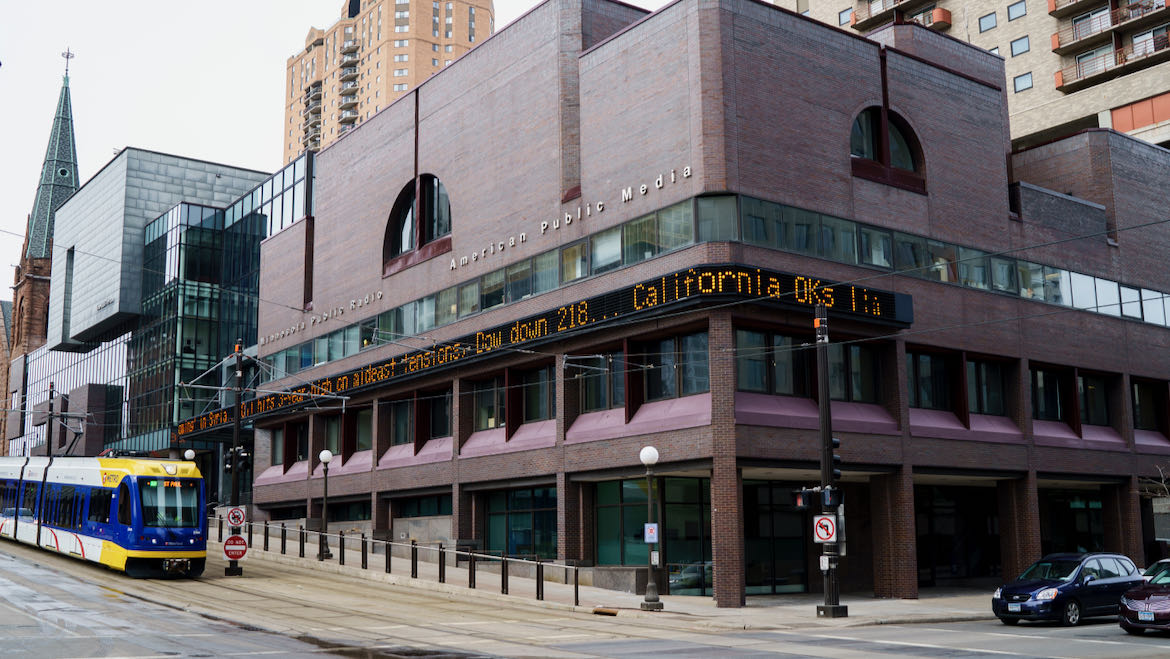Output: BackStory with the American History Guys scales up to weekly

BackStory hosts Ed Ayers, Brian Balogh and Peter Onuf (Photo: Tom Coghill)
Produced as a series of monthly specials since 2008, the show will relaunch in May with new segments exploring historical themes suggested by the week’s news events.

The American History Guys Ed Ayers, left, Brian Balogh and Peter Onuf bring historical perspectives of three different centuries to weekly discussions of the week’s news. (Photo: Tom Coghill.)
With three historian hosts billed as “the American History Guys,” BackStory makes a nod towards the wisecracking Tom and Ray Magliozzi of Car Talk, known to public radio listeners as “the car guys,” and there’s certainly joviality to their banter with each other and listeners who call in.
But BackStory takes its history seriously. Andrew Wyndham, executive producer and media director for the Virginia Foundation for the Humanities, prefers an analogy made by a station program director who said BackStory could “do for history what Carl Sagan did for science.”
Each of the show’s hosts brings special expertise to the subject: Peter Onuf, a professor at the University of Virginia, specializes in 18th-century American history, and Brian Balogh, also of U-Va., is an expert on the 20th century. Ed Ayers, a history professor and president of the University of Richmond, covers the gap between them, 19th-century America.
BackStory’s editorial philosophy, as Balogh described it in the series’ first program, is to “rip a topic from the headlines and follow its trail back in time.” A case in point is “Born in the USA,” an episode produced to demonstrate the approach for the weekly broadcast, which explores the evolution of American names from John and Mary to Aidan and Kay-Den, birthing technologies throughout the centuries, historic interpretations of the beginning of personhood, and the concept of birthright citizenship.
In ramping up to produce weekly episodes, BackStory has hired four new associate producers and tapped veteran talk-show producers Graham Griffith (formerly of WNYC’s The Takeaway and WBUR’s On Point) and Kerry Donahue (also a former top producer at WNYC and The Takeaway, now with Marketplace) as consultants.
Among the new elements under consideration to bring more timeliness to the show are a historians’ roundtable on the week’s news events, a segment looking at historical objects that are especially relevant to show topics (forceps or hoodies, for example) and the linguistic history of a newsworthy word or phrase.
Producers hope that the changes will enhance the show’s appeal to their target audience of non-history buffs. “Every week you can get that really broad arc of things and ideas and meanings that have changed over a long period of time,” said Tony Field, producer. Field joined BackStory for its launch in 2008 and also worked at New York’s WNYC, where he produced On the Media.
During its four-year run as a series of specials, BackStory has been broadcast by 139 public radio stations in 39 states and Washington, D.C. Wyndham aims to secure weekly timeslots on 30 to 50 stations by the end of the year.
BackStory also has an audience of on-demand listeners. Its free podcast, offered via Apple’s iTunes store, has been downloaded more than 1.3 million times.
The show’s expansion was backed in part by the National Endowment for the Humanities. — Theodore Fischer
Philosophy Talk will stage three live tapings in Oregon this month.
The weekly radio show hosted by Stanford University professors John Perry and Ken Taylor will visit three college campuses near Portland April 18–20 to talk before live audiences about topics such as climate change and morality.
Producer Ben Manilla began working on the broadcast eight years ago after Perry and Taylor approached him with a “ghastly, but special” sample tape of the show they hoped to bring to public radio. KALW in San Francisco provides Philosophy Talk’s home studio and is its original broadcast partner. Carriage has grown to 80 public radio stations.
Manilla described Philosophy Talk as “a thinking person’s variety show. . . . [W]e’re trying to raise the level of conversation in the media, in our own way.” Each program typically features conversation between the philosopher hosts and a guest, contributions from a “roving philosophical reporter” and a satirist, and musical interludes.
Stanford backs the series, which typically produces 32 shows and up to five specials annually, through its humanities outreach initiative.
Tapings will be staged at Oregon State University, Lewis & Clark University and Pacific University. “Portland is a town that has really embraced us,” Manilla said. — R.H.





